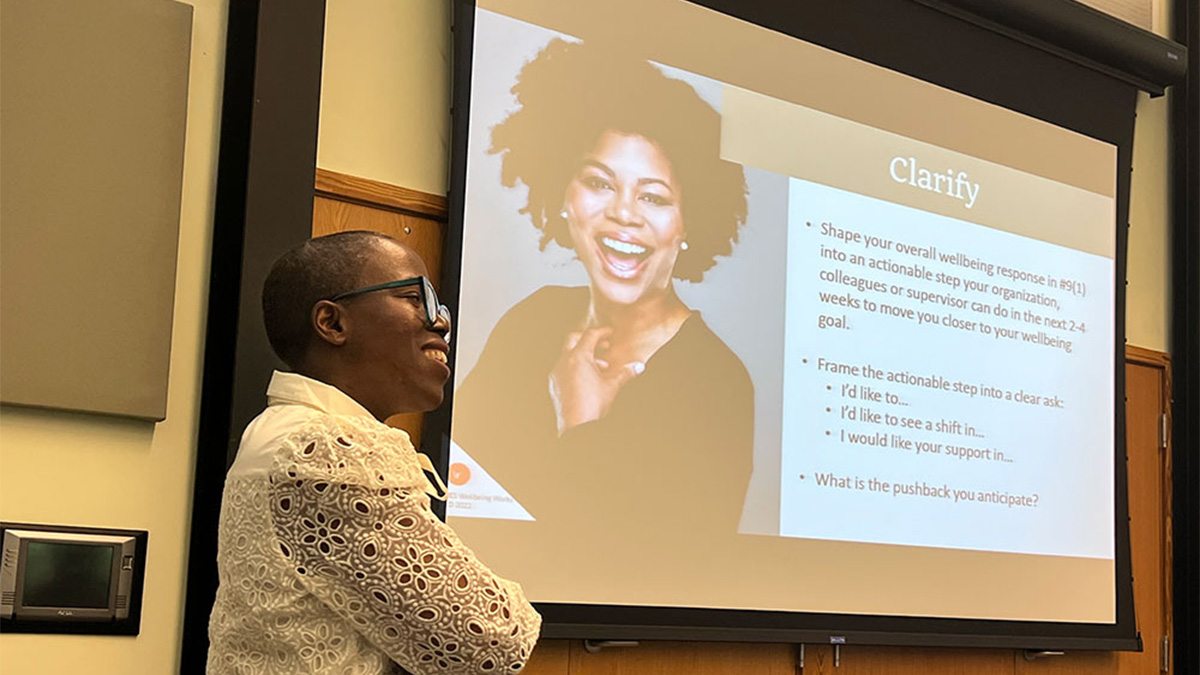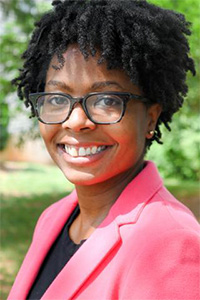Black women share their experiences in government
The School of Government’s Kimalee Dickerson connects them through the Engaging Women of Color conference.

Kimalee Dickerson was excited and slightly overwhelmed when she had to create a waiting list for last summer’s Engaging Women of Color conference.
Capped at 80 attendees, the one-day gathering at the North Carolina Botanical Garden in June 2023 was the third such conference. SOG faculty held the first one in 2019 as a way for women of color working in public service, primarily local and state government in North Carolina, to connect and share their experiences. Due to the COVID-19 pandemic, 2020’s conference was held online, and momentum to plan another event halted.
But the connections made during the first two conferences continued to grow. Attendees formed a group that has been meeting for years. These women support each other as they navigate positions that are meaningful for themselves and the communities they represent.
“It’s important to have diverse representation in public service that includes different experiences and perspectives in the operations that are meant to serve everyone,” says Dickerson, assistant professor of public leadership in the School of Government. “A young person of color should be able to walk into a local government space and see someone who looks like them.”
And while representation is important for equity, Dickerson believes the toll it can take on those representatives isn’t fully understood — something she’s now exploring in a study.
Space to share
Using the group as a starting point, Dickerson began searching for study participants. In November 2022, she enlisted 38 women of color working in various local and state government positions throughout North Carolina. The participants were divided into seven focus groups, and each met once via Zoom for an hour.

Kimalee Dickerson
“One of the most powerful things about a focus group is that it can really create a sense of community,” Dickerson says. “It provides a space for people to talk about things they may not talk about often and gives the researcher an opportunity to gain a deeper understanding of their experiences through conversation.”
Dickerson learned how these women felt about the roles they play in departments ranging from human resources to law enforcement to city management. Themes developed in their conversations, like being a mediator for their community and providing access to services and information.
“This was a motivator for their work, and participants said they wanted to use their positions to create a better experience for communities that have been overlooked in the past,” she says.
Opposition and opportunity
The focus groups discussed opposition in the form of promotions or raises that were withheld, feeling the need to work harder to prove they deserved their position, and the anxiety and stress that goes with both. Opportunity was identified as being leaders and role models and holding the door open for people to follow them.
These conversations inspired Dickerson to revive the conference last summer with a focus on mental health and wellbeing. She’s now planning for the 2024 EWC conference on June 14.
Meanwhile, Dickerson is sharing the information she collected from the focus groups. She wrote a chapter for a forthcoming book, “Women of Color and Hair Bias in the Work Environment,” presented her findings at the 2023 Conference of Minority Public Administrators and will submit her study to public administration journals for publication.
“It’s been powerful to see the need and desire of WOC to be connected and have opportunities to network and learn together,” she says. “I look forward to my future work with these women and adding their experiences to the literature.”







